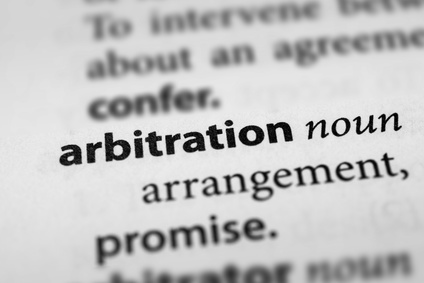The U.S. Court of Appeals for the Sixth Circuit recently held that an automobile dealer is a “creditor” under the federal Equal Credit Opportunity Act that was not excepted from the requirement to provide adverse action notices, as the dealer did not “merely arrange for credit by referring applicants to lenders” as provided under Regulation B. The Court also reversed the district court’s ruling that injunctive relief was not an available remedy under ECOA and also reversed summary judgment in the dealer’s favor on the plaintiff’s state-law conversion claim, remanding the case for further proceedings on those claims. A copy…
Posts published by “Maurice Wutscher LLP”
The attorneys of Maurice Wutscher are seasoned business lawyers with substantial experience in business law, financial services litigation and regulatory compliance. They represent consumer and commercial financial services companies, including depository and non-depository mortgage lenders and servicers, as well as mortgage loan investors, financial asset buyers and sellers, loss mitigation companies, third-party debt collectors, and other financial services providers. They have defended scores of putative class actions, have substantial experience in federal appellate court litigation and bring substantial trial and complex bankruptcy experience. They are leaders and influencers in their highly specialized area of law. They serve in leadership positions in industry associations and regularly publish and speak before national audiences.
The U.S. Court of Appeals for the Second Circuit recently confirmed that, in the Second Circuit, an arbitration agreement is no longer binding where the intent of the parties was to arbitrate with only a specific arbitrator and that arbitrator is unavailable. A copy of the opinion in Moss v. First Premier Bank is available at: Link to Opinion. The borrower took out payday loans from an online payday lender. The payday lender relied on banks to serve as middlemen to debit the customer’s account. Two banks each debited the borrower’s account for one payday loan. When the borrower applied for…
The Court of Appeal of the State of California, Third Appellate District, recently held that an order denying interim attorney’s fees under California Civil Code § 2924.12, which is part of the California Homeowner Bill of Rights, is not an appealable order. A copy of the opinion in Sese v. Wells Fargo Bank is available at: Link to Opinion. The plaintiff borrower obtained a mortgage loan, which was subsequently modified, but the plaintiff defaulted on the modified loan also. The defendant mortgagee recorded its notice of default. The plaintiff borrower requested another modification but did not submit the required documentation. The…
The County Court of the Twelfth Judicial Circuit Court of Florida recently held that a debt buyer could not use the original creditor’s credit card statements to try to collect on the underlying debts, as the debt buyer failed to present evidence that it independently verified the accuracy of the credit card statements. A copy of the opinion in Midland Funding LLC v. Nole is available at: Link to Opinion. The plaintiff debt buyer presented the sworn testimony of a senior legal specialist and records custodian for the debt servicing entity affiliated with the plaintiff. The records custodian testified as…
The U.S. Court of Appeals for the Third Circuit recently held that a businessowners insurance policy did not cover a class action judgment that arose out of unsolicited advertisement communications in violation of the federal Telephone Consumer Protection Act. A copy of the opinion in Auto-Owners Insurance Company v. Stevens & Ricci Inc. is available at: Link to Opinion. A business was solicited by an advertiser who claimed to have a fax advertising program that complied with the TCPA, 47 U.S.C. § 227. The business allowed the advertiser to fax thousands of advertisements to potential customers on its behalf. Six years later, a…
The U.S. Court of Appeals for the Third Circuit recently affirmed a denial of class certification, holding that the plaintiffs’ theory was insufficiently supported by class-wide evidence to demonstrate the fact of damages whether on the issues of “ascertainable loss” or “causal relationship,” and failed to establish that common questions would predominate over individual questions. A copy of the opinion in Harnish v. Widener Univ. Sch. of Law is available at: Link to Opinion. A group of former law students filed a class action against their law school, alleging that the school violated the New Jersey Consumer Fraud Act (NJCFA) and…
A Massachusetts Superior Court recently held that reaching a debtor’s voicemail, but choosing to not leave a message, is a “communication” under the Massachusetts Debt Collection Regulations, 940 Code Mass. Regs. § 704(1)(f). A copy of the opinion in Watkins v. Glenn Associates, Inc. is available at: Link to Opinion. The plaintiff sued for injunctive relief and to recover damages from a creditor for alleged violations of the Massachusetts Debt Collection Regulations, 940 Code Mass. Regs. § 704 et seq., which states that it is an “unfair and deceptive act or practice for a creditor to…[i]nitiat[e] a communication with any debtor…
The Appellate Court of Illinois, Third District, recently held that a mortgagee could foreclose on a husband and wife’s property held as tenants by the entirety despite that only the husband signed the note. In reaching its decision, the Court relied on the fact that the wife signed the mortgage with her husband, and was aware of the existence and the substance of the note. A copy of the opinion in OneWest Bank FSB v. Cielak is available at: Link to Opinion. The borrowers, husband and wife, purchased a home in Illinois. The borrowers acquired the real estate as tenants by…
The U.S. Court of Appeals for the Third Circuit recently held that the Bankruptcy Code does not preempt state law claims brought by non-debtors for damages related to the filing of an involuntary bankruptcy proceeding. A copy of the opinion in Rosenberg v. DVI Receivables XVII, LLC is available at: Link to Opinion. The creditors in this action initiated state court litigation against limited partnerships controlled by the debtor, alleging money owed under various leases. During the state court proceedings, the creditors filed an involuntary bankruptcy proceeding against the debtor and the debtor’s affiliated medical imaging companies, none of which were defendants in the…
The U.S. Court of Appeals for the Eighth Circuit recently held that plaintiff’s class counsel is allowed to submit proposals to the court regarding the method for calculation of reasonable attorney’s fees, but the court has the discretion to accept or reject such proposals and is not required to accept the plaintiff’s proposed method. In so ruling, the Court also held that the Class Action Fairness Act’s “coupon settlement” provisions at 28 U.S.C. § 1712 permit a district court to use a combination of percentage-of-coupons-used and lodestar methods to calculate reasonable attorney’s fees, but CAFA does not require that any portion…
The U.S. Court of Appeals for the Fifth Circuit recently held that HUD reverse mortgage regulations and guidelines do not give the borrower a private cause of action unless the regulations are expressly incorporated into the loan agreement. A copy of the opinion in Johnson v. World Alliance Financial Corp. et al is available at: Link to Opinion. A male borrower entered into a Home Equity Conversion Mortgage (HECM) with the defendant, lender. The loan was secured by the male borrower’s home, which already had two liens on it. One of the liens was held by the male borrower’s ex-wife. Later, the…
The District Court of Appeal of Florida, Fourth District, recently held that real property liens arising after a final judgment of foreclosure are not discharged by Florida’s lis pendens statute. A copy of the opinion in Ober v. Town of Lauderdale-by-the-Sea is available at: Link to Opinion. A mortgagee recorded a lis pendens on real property as part of a foreclosure proceeding against a homeowner. Subsequently, the mortgagee obtained a final judgment of foreclosure. However, the foreclosure sale was not conducted for some four years following entry of the judgment of foreclosure. After the foreclosure, and before the foreclosure sale occurred, the…












